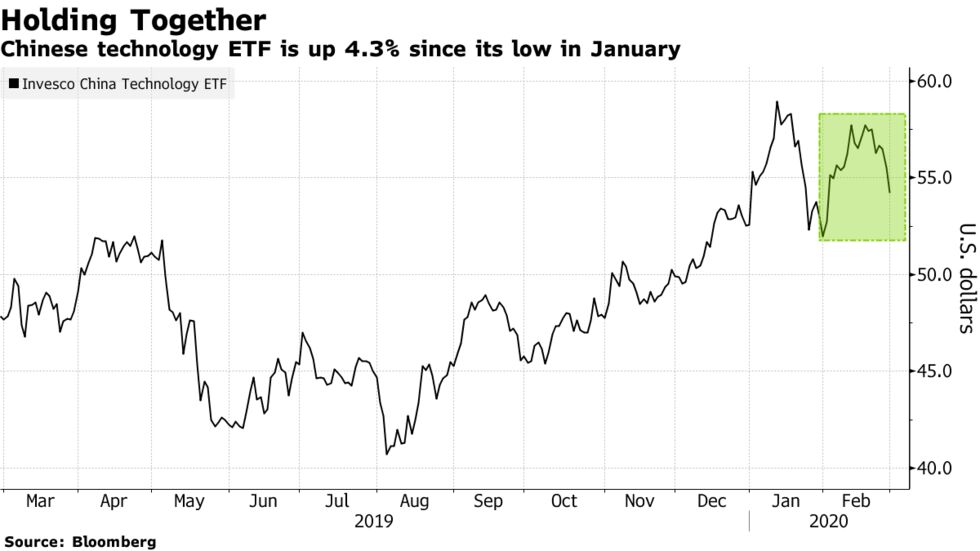
(Bloomberg) A decision to unload a big slug of tech megacaps in January sat poorly for a while with Andrew Slimmon, who helps run stock funds at Morgan Stanley. After the carnage of the last seven days, he wishes he’d sold more.
“We didn’t sell enough. You never do,” says Slimmon, a managing director and senior portfolio manager at Morgan Stanley Investment Management. “Now we’re going to buy more. I’m not decidedly in the camp of, ‘Oh gosh, rates are going to zero, this is the beginning of the end.’ ”
The 33-year Wall Street veteran is wading back in after a 13% rout shredded valuations in the Nasdaq 100 Index, which had surged 29% in the four months before the crash.
Slimmon, who makes buying and selling decisions for $5.3 billion in assets, decided the time was right in late January to trim his U.S. tech position after the U.S. and China inked a partial trade deal. At first the stocks rose -- then the bottom fell out.
Steady gains in stocks like Amazon.com Inc., Alphabet Inc. and Facebook Inc. had Slimmon worried about the size of his tech position in January, so he trimmed it. At its peak, the Nasdaq 100 traded at 24 times projected earnings, data compiled by Bloomberg show. That’s 41% above its 10-year average.
“The hardest thing to do is sell things that look great,” Slimmon said by phone. “We have a process in place that recognized that stocks were really extended as they were. That will be an area that we will go back and look. As the market drops, you have to take a little more risk.”
Even more than U.S. megacaps, Slimmon likes Chinese technology firms. While some American investors may shy away from a nation whose economy has largely shut, he sees opportunities. China, first to be hit by the coronavirus, will likely be the first to move past the threat, he said, and the country’s high-growth tech companies will be beneficiaries of a rebound.
He’s looking at Chinese tech companies after trimming his position in the sector in mid-January. Data on new infections show the outbreak is finally stabilizing in China, even as it’s rapidly spreading across Europe.

The coronavirus, which has killed more than 2,800 people around the world, has hit U.S. tech firms with a strong presence in Asia. Apple Inc., which relies on China for about 20% of its revenue, has tanked 16% in the past two weeks. Chipmaker Advanced Micro Devices Inc, which derives a quarter of its sales from China, is down 21% since last Thursday. The stock added 3.3% on Friday, helping lift chipmakers up 2.2%.
Ironically, the on-again, off-again trade war with China may have left U.S. tech firms, particularly chipmakers, more able to withstand supply chain disruptions, according to Gina Martin Adams, chief equity strategist at Bloomberg Intelligence. Companies in the sector have been adjusting their supply chains for months if not years as they tried to minimize their reliance on China amid a two-year trade spat.
“Technology companies are incredibly resilient partially because of what they just went through,” Martin Adams said on Bloomberg TV. “Using a five-year historical view of what the supply chain looks like is going to miss what the supply chain looks like today. There is disruption in supply chain, but many of us are suggesting that it’s going to be much greater than it likely is.”



